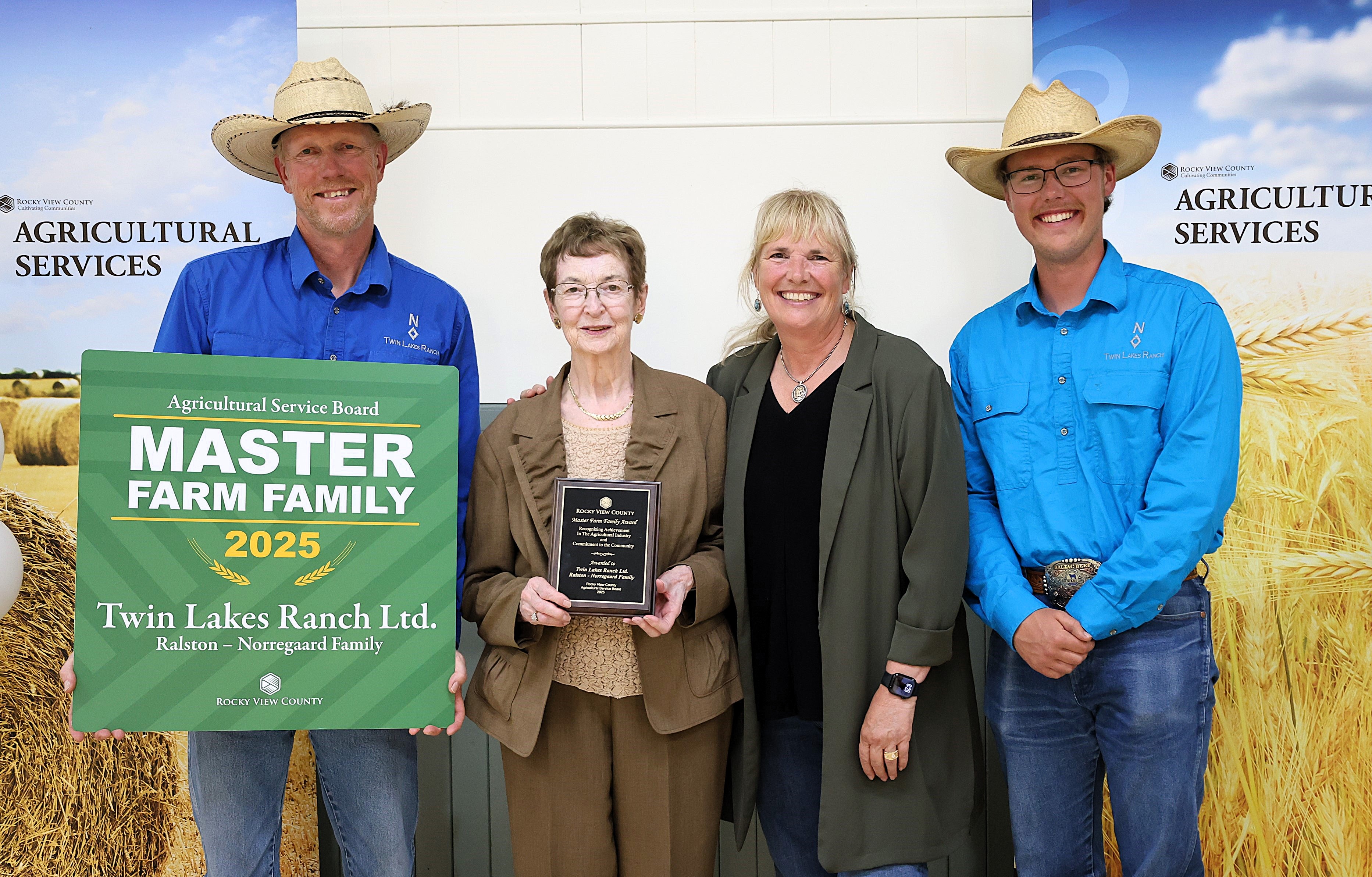The 2025 Master Farm Family Award has been presented to Twin Lakes Ranch Ltd., a multigenerational cattle operation located east of Balzac.
The award was announced by Councillor Greg Boehlke, chair of the Agricultural Service Board, during Rocky View County’s annual agricultural tour.
This year’s award honours the Ralston and Norregaard families—Brenda Ralston, Phil Norregaard, Mark Norregaard and Patricia Ralston—for their exceptional contributions to agriculture, sustainability, farm management and community service.
Founded in 1989, the Master Farm Family Award recognizes a Rocky View County ranch or farm family that demonstrates excellence in community involvement, agricultural business and industry engagement, team farm management and sustainable production practices. Nominees are put forward by local residents and reviewed by the Agricultural Service Board, which selects one outstanding recipient each year.
Twin Lakes Ranch Ltd. traces its roots back to 1918. Since then, five generations of the family have called the ranch home. Today, Brenda and her husband Phil manage the ranch alongside their son Mark, who is studying animal science at the University of Saskatchewan and building his own herd.
A blend of tradition and innovation defines the ranch’s operations. Twin Lakes Ranch focuses on perennial and annual forages to feed livestock, complemented by strategic crop production. Phil oversees the daily farm activities, while Brenda contributes her expertise in cattle nutrition and works as a research scientist at Lakeland College, specializing in farm animal welfare and antimicrobial resistance.
The family is committed to sustainability, employing innovative grazing practices such as fall-seeded rye for spring grazing and cross-fencing to maximize forage use. They have also invested in water management systems to respond to regional aquifer pressure, developing dugouts and pit wells to supplement traditional water sources.
